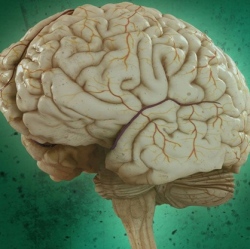
It has been known for more than 85 years that some brain cells could withstand being starved of oxygen. Scientists, writing in the journal Nature Medicine, have shown how these cells switch into survival mode. They hope to one-day find a drug which uses the same trick to protect the whole brain.
Treating a stroke is a race against time. Clots that block the blood supply prevent the flow of oxygen and sugar to brain cells, which then rapidly die. But in 1926, it was noticed that some cells in the hippocampus, the part of the brain involved in memory, did not follow this rule.
"They’re staying alive when the prediction would say that they should die," said Prof Alastair Buchan from Oxford University who has investigated how they survive.
Experiments on rats showed that these surviving-cells started producing a protein called hamartin – which forces cells to conserve energy. They stop producing new proteins and break down existing ones to access the raw materials.
When the researchers prevented the cells from producing hamartin, they died just like other cells. Prof Buchan said: "We have shown for the first time that the brain has mechanisms that it can use to protect itself and keep brain cells alive."
